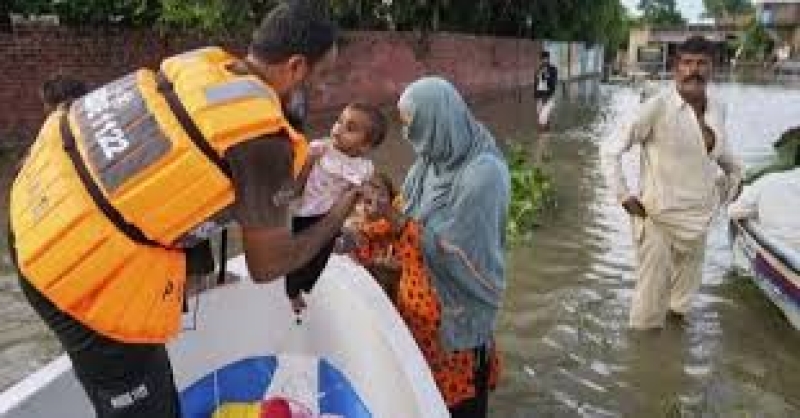- A welcome rare momentum to reach a permanent ceasefire in Gaza |
- Indonesia school collapse kills 17, dozens still missing |
- Gazans Welcome Trump Ceasefire Call as Hostages Set for Release |
- Conservative Takaichi Poised to Become Japan’s First Woman PM |
Flash floods kill 34 in Kashmir

Torrential monsoon rains have unleashed deadly flash floods and landslides across Pakistan and Indian-controlled Kashmir, killing at least 34 people and displacing more than 210,000 in Pakistan, officials said Wednesday.
In Indian-controlled Kashmir’s Jammu region, a landslide struck a popular Hindu pilgrimage route near Katra late Tuesday, burying devotees en route to a hilltop shrine. Disaster management official Mohammed Irshad said bodies were pulled from the debris, while at least 18 injured pilgrims were taken to hospitals. Rescue teams were searching for the missing, and pilgrimages were suspended.
Meanwhile, Pakistan’s eastern Punjab province has been inundated by swollen rivers following relentless downpours. Lt. Gen. Inam Haider, head of the National Disaster Management Authority, said the military was assisting in evacuations and relief operations. Two soldiers were killed while helping flood victims, army officials confirmed.
Authorities said the flooding submerged the revered shrine of Guru Nanak, the Sikh religion’s founder, in Narowal district. Late Wednesday, a controlled breach was carried out on the Chenab River to protect a barrage from collapse, diverting water into nearby villages. Thousands of people watched from higher ground as their homes were submerged.
More than 20,000 people were evacuated overnight from flood-prone areas outside Lahore, as rising waters from the Ravi River threatened Pakistan’s second-largest city, officials said.
Rescue efforts are also ongoing in six Punjab districts, where heavy rainfall and water released from Indian dams have swamped low-lying areas. Officials warned that floodwaters in the Ravi, Chenab and Sutlej rivers are still rising.
Pakistan has been hit hard this monsoon season, with floods killing more than 800 people since late June. Scientists warn climate change is intensifying rainfall across South Asia, raising fears of a repeat of the 2022 disaster that inundated a third of Pakistan and killed nearly 1,800.
India alerted Pakistan earlier this week about potential cross-border flooding, marking the first public official contact between the rivals in months, reports UNB.

